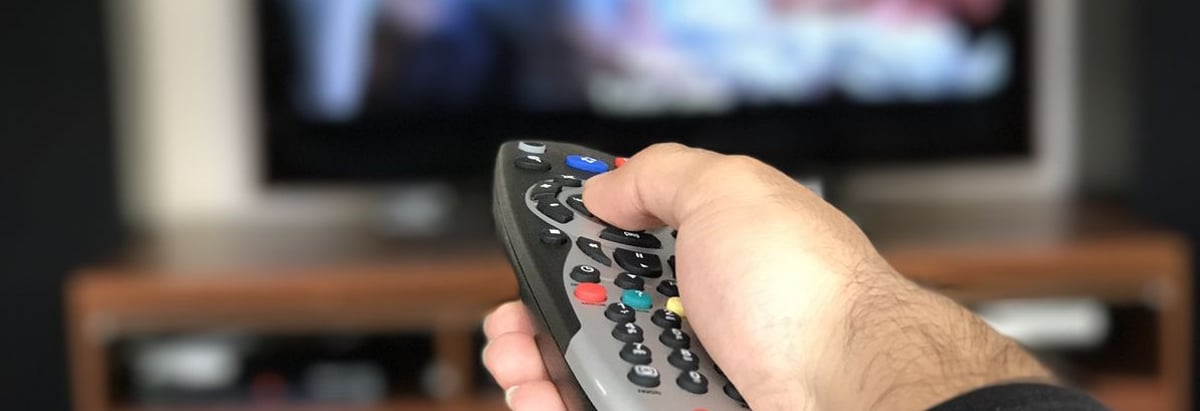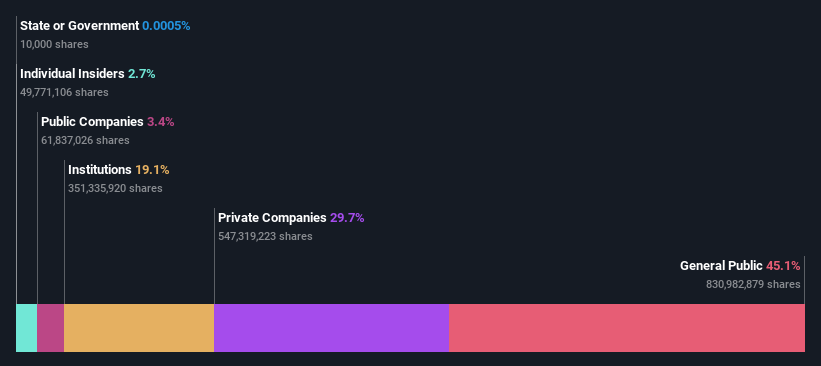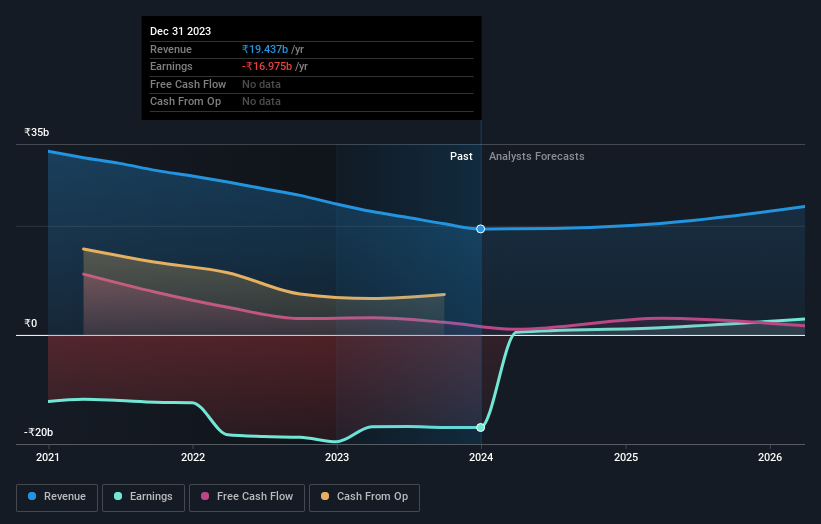Dish TV India Limited's (NSE:DISHTV) biggest owners are retail investors who got richer after stock soared 14% last week

Key Insights
- Dish TV India's significant retail investors ownership suggests that the key decisions are influenced by shareholders from the larger public
- 50% of the business is held by the top 13 shareholders
- Institutions own 19% of Dish TV India
If you want to know who really controls Dish TV India Limited (NSE:DISHTV), then you'll have to look at the makeup of its share registry. The group holding the most number of shares in the company, around 45% to be precise, is retail investors. In other words, the group stands to gain the most (or lose the most) from their investment into the company.
As a result, retail investors collectively scored the highest last week as the company hit ₹35b market cap following a 14% gain in the stock.
Let's delve deeper into each type of owner of Dish TV India, beginning with the chart below.
Check out our latest analysis for Dish TV India

What Does The Institutional Ownership Tell Us About Dish TV India?
Many institutions measure their performance against an index that approximates the local market. So they usually pay more attention to companies that are included in major indices.
As you can see, institutional investors have a fair amount of stake in Dish TV India. This suggests some credibility amongst professional investors. But we can't rely on that fact alone since institutions make bad investments sometimes, just like everyone does. If multiple institutions change their view on a stock at the same time, you could see the share price drop fast. It's therefore worth looking at Dish TV India's earnings history below. Of course, the future is what really matters.

We note that hedge funds don't have a meaningful investment in Dish TV India. The company's largest shareholder is Ambit Flowers Asset Reconstruction Co. Private Limited, with ownership of 24%. For context, the second largest shareholder holds about 4.7% of the shares outstanding, followed by an ownership of 3.4% by the third-largest shareholder.
A closer look at our ownership figures suggests that the top 13 shareholders have a combined ownership of 50% implying that no single shareholder has a majority.
While studying institutional ownership for a company can add value to your research, it is also a good practice to research analyst recommendations to get a deeper understand of a stock's expected performance. There is some analyst coverage of the stock, but it could still become more well known, with time.
Insider Ownership Of Dish TV India
The definition of an insider can differ slightly between different countries, but members of the board of directors always count. Management ultimately answers to the board. However, it is not uncommon for managers to be executive board members, especially if they are a founder or the CEO.
Most consider insider ownership a positive because it can indicate the board is well aligned with other shareholders. However, on some occasions too much power is concentrated within this group.
Shareholders would probably be interested to learn that insiders own shares in Dish TV India Limited. As individuals, the insiders collectively own ₹951m worth of the ₹35b company. It is good to see some investment by insiders, but it might be worth checking if those insiders have been buying.
General Public Ownership
The general public-- including retail investors -- own 45% stake in the company, and hence can't easily be ignored. While this size of ownership may not be enough to sway a policy decision in their favour, they can still make a collective impact on company policies.
Private Company Ownership
Our data indicates that Private Companies hold 30%, of the company's shares. Private companies may be related parties. Sometimes insiders have an interest in a public company through a holding in a private company, rather than in their own capacity as an individual. While it's hard to draw any broad stroke conclusions, it is worth noting as an area for further research.
Public Company Ownership
We can see that public companies hold 3.4% of the Dish TV India shares on issue. This may be a strategic interest and the two companies may have related business interests. It could be that they have de-merged. This holding is probably worth investigating further.
Next Steps:
It's always worth thinking about the different groups who own shares in a company. But to understand Dish TV India better, we need to consider many other factors. Consider for instance, the ever-present spectre of investment risk. We've identified 2 warning signs with Dish TV India (at least 1 which can't be ignored) , and understanding them should be part of your investment process.
If you are like me, you may want to think about whether this company will grow or shrink. Luckily, you can check this free report showing analyst forecasts for its future.
NB: Figures in this article are calculated using data from the last twelve months, which refer to the 12-month period ending on the last date of the month the financial statement is dated. This may not be consistent with full year annual report figures.
New: Manage All Your Stock Portfolios in One Place
We've created the ultimate portfolio companion for stock investors, and it's free.
• Connect an unlimited number of Portfolios and see your total in one currency
• Be alerted to new Warning Signs or Risks via email or mobile
• Track the Fair Value of your stocks
Have feedback on this article? Concerned about the content? Get in touch with us directly. Alternatively, email editorial-team (at) simplywallst.com.
This article by Simply Wall St is general in nature. We provide commentary based on historical data and analyst forecasts only using an unbiased methodology and our articles are not intended to be financial advice. It does not constitute a recommendation to buy or sell any stock, and does not take account of your objectives, or your financial situation. We aim to bring you long-term focused analysis driven by fundamental data. Note that our analysis may not factor in the latest price-sensitive company announcements or qualitative material. Simply Wall St has no position in any stocks mentioned.
About NSEI:DISHTV
Dish TV India
Provides direct to home (DTH) and teleport services in India.
Undervalued with moderate growth potential.
Similar Companies
Market Insights
Community Narratives



